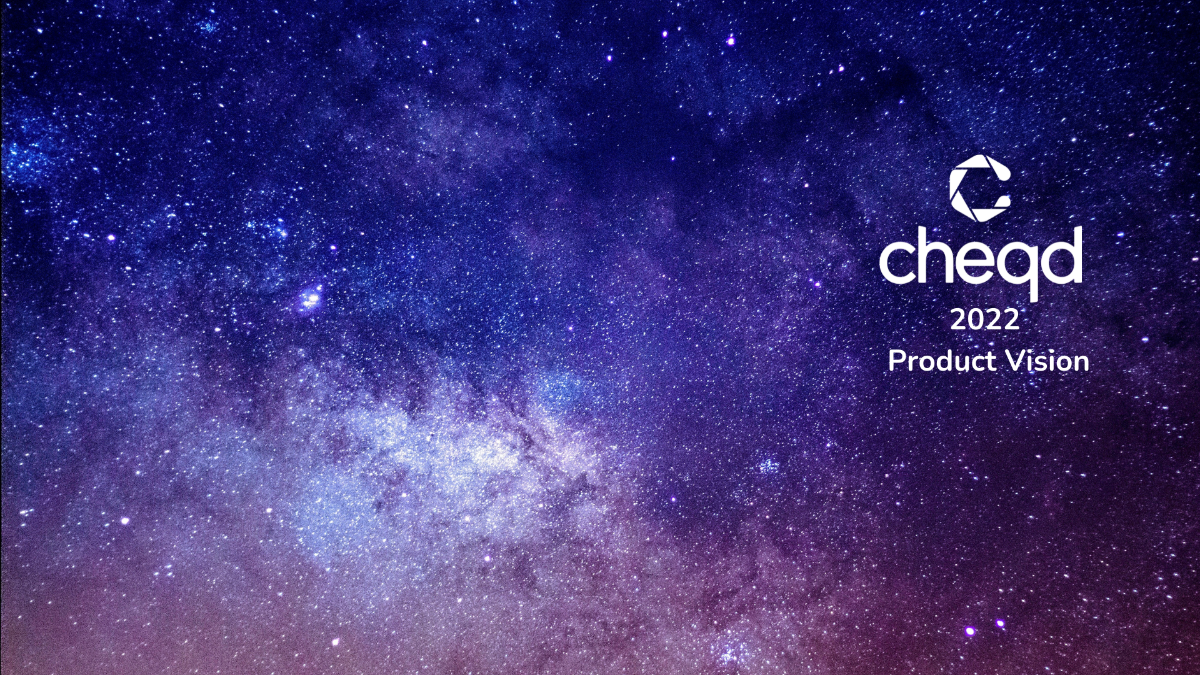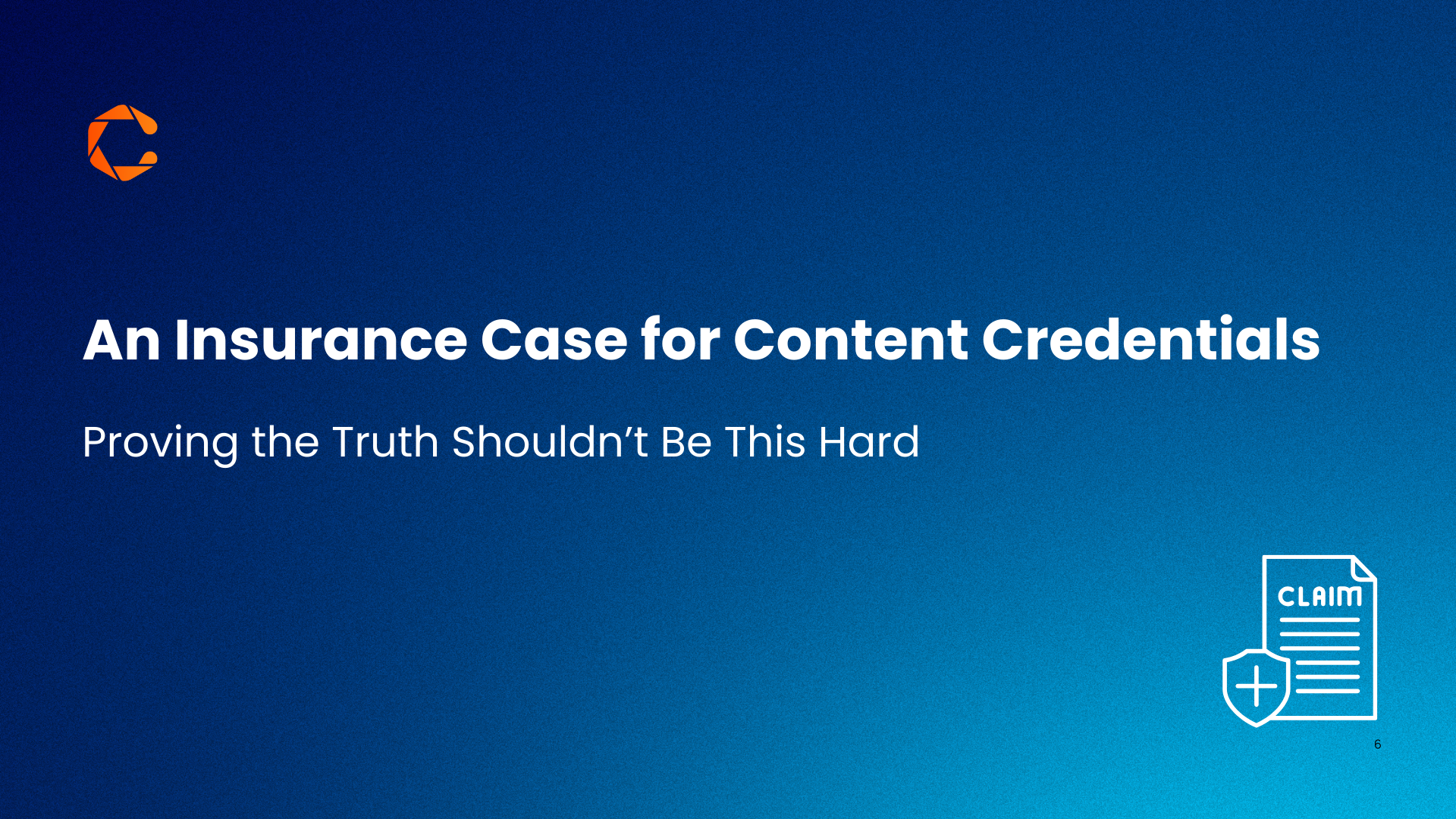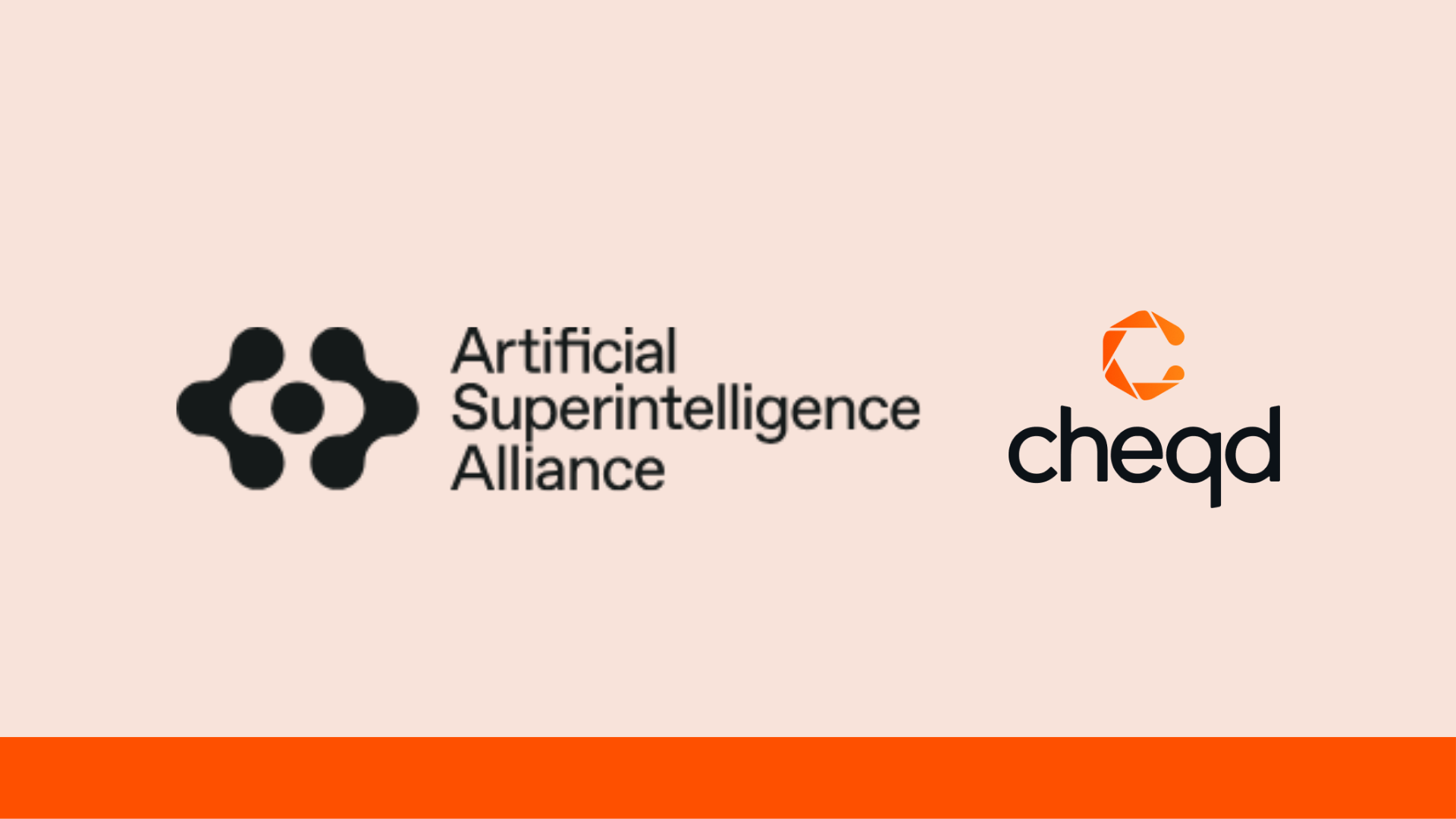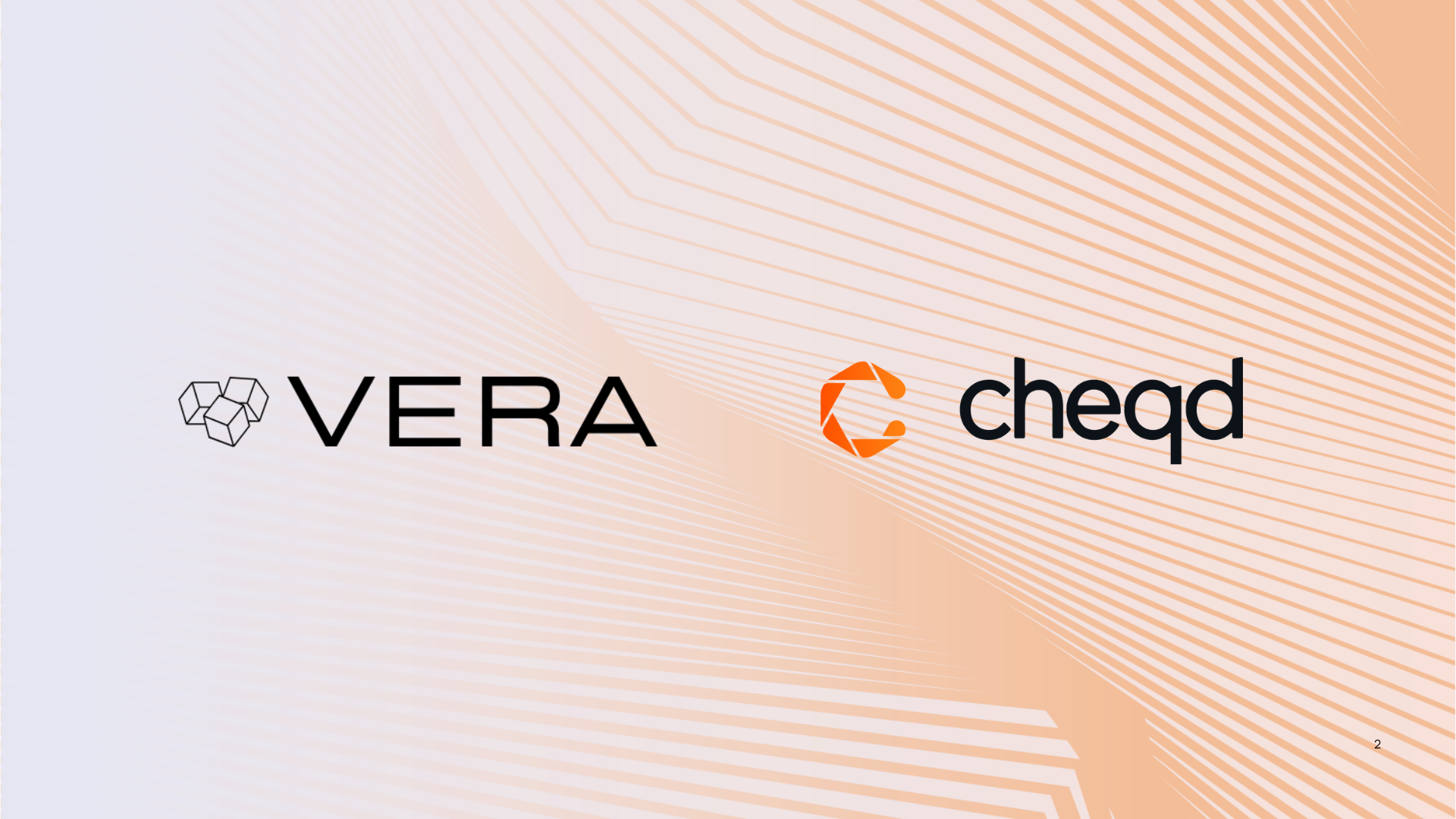Co-authored by Fraser Edwards, Ross Power, and Alex Tweeddale
We’re incredibly excited to begin the year after the successful launch of the cheqd network and CHEQ token at the end of 2021 and can’t wait to share with you what’s coming next. Read more about what we’ve achieved in cheqd’s 2021 year in review from our CEO and co-founder, Fraser Edwards.
This blog will offer insights into our priorities and next steps for the cheqd network.

cheqd’s ecosystem of partners: ranging from self-sovereign identity vendors to Web3.0 companies
Bringing on board a wide range of partners and participants
Our priority at the launch of cheqd network was to establish a public, decentralised network with core decentralised identity functionality and governance mechanisms. It has been exciting to welcome 45+ validators on board, including 20+ self-sovereign identity (SSI) application vendors, digital identity startups, investors, and Cosmos-native / cross-chain network validators. Many individual entities and organisations who participated as validators in the cheqd testnet also helped to make our software releases more stable and provided invaluable feedback, and we were excited to welcome many of them onto our mainnet as well.
Special shoutouts go to the Osmosis DEX team and community for incentivising out token pairs on the DEX; Notional Labs for relaying us to other Cosmos chains (and for a lot of support during the launch phase); and to OmniFlix for providing us with the ability to proving the ability to transfer, stake, and vote on governance proposals via their Keplr wallet integration.

Metrics from the cheqd blockchain explorer
KEY ACHIEVEMENTS, BY THE NUMBERS
- CHEQ was listed on Osmosis, the largest DEX (decentralised exchange) in the Cosmos ecosystem, with CHEQ:OSMO (Osmosis pool #602 statistics) and CHEQ:ATOM (Osmosis pool #617 statistics) liquidity pools established by the community.
- CHEQ was listed by Gate.io, a top 10 trading CEX (centralised exchange), with millions of CHEQ tokens in volume traded. We hope to be available in more venues soon.
- Approximately 25% of the total supply of the network is being staked on validators, giving our community the ability to reap staking rewards and participate in decentralised governance that controls the network.
TL;DR: What’s coming next in cheqd?
We are excited to expand on our vision for a public, decentralised identity network that establishes business models for self-sovereign identity. To do this, we will build on top of the core identity and token functionality that we shipped with our mainnet launch towards the end of last year. Future releases of cheqd product software would ship, once accepted by the network and community using governance proposals, at the end of every calendar month.
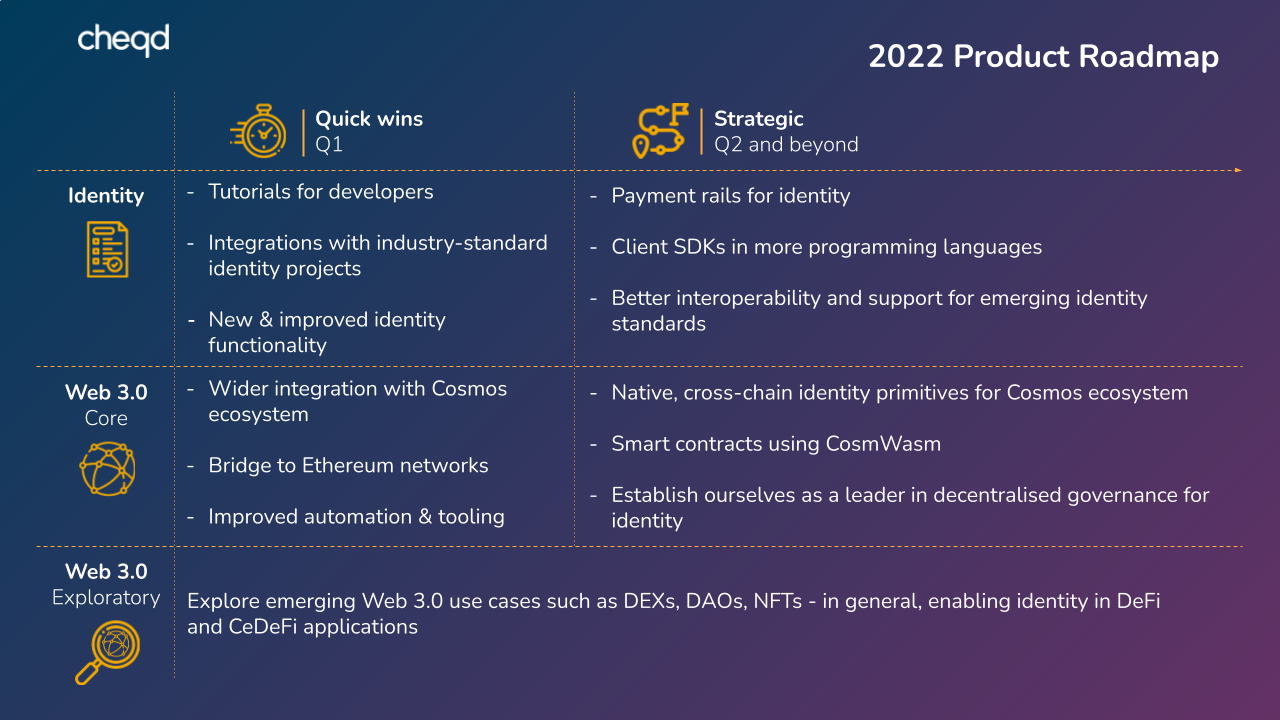
cheqd product roadmap overview for 2022
- Identity: Core identity functionality for our partners to build compelling self-sovereign identity use-cases on top of the cheqd network.
- Web 3.0 Core: Core Web 3.0 functionality adds deeper integration for our network and token into the Cosmos and other blockchain ecosystems.
- Web 3.0 Exploratory: Emerging Web 3.0 use-cases such as decentralised exchanges (DEX) ecosystems; decentralised autonomous organisations (DAOs); identity for non-fungible tokens (NFTs), and in general, DeFi applications.
We would love to hear feedback from our community and our partners on our product roadmap described below. Within the next few weeks, our team will launch a product roadmap survey that allows everyone to provide feedback on what matters to you and where we should be focussing. If you’re interested in taking part in this, please ensure you have signed up for our newsletter or are in our Telegram group. Stay tuned for more details!
Deep-dive into cheqd’s product roadmap for 2022
Our focus is to expand the utility of the cheqd network for decentralised identity use cases. This is our core mission and vision and — the reason why — we have such a broad interest within the self-sovereign identity (SSI) vendor ecosystem.
We want to get to a point, quickly, where we can provide compelling answers to “What identity capabilities does cheqd network provide, and how do I build it into my apps as an app developer / software vendor?”
Equally important as a focus area is deeper integrations with the Cosmos and wider Web 3.0 ecosystem. Digital identity is a burning need across DeFi, CeDeFi, and “traditional” Web 2.0 apps that cuts across as a “horizontal”, as well as being extremely important in “verticals” such as NFTs and online/offline reputation.
In the sections below, we’ll talk you through our immediate product roadmap priorities, as well as future product improvements later in the year, based on these two categories.
Quick Wins product roadmap items (Q1 2022)

Product roadmap items related to digital identity for cheqd in 2022
Identity
Much of the basic identity functionality is currently live on the cheqd mainnet, but we’ve been working on stability and security improvements (due to go live by the end of January 2022) before we begin guiding app developers in earnest. Here are our product ideas in the identity space we believe will have the greatest impact in the short term.
TUTORIALS FOR DEVELOPERS ON USING THE IDENTITY AND TOKEN FUNCTIONALITY OF CHEQD NETWORK
Simple tutorials that help app developers answer the question “How can I integrate cheqd into my app?” is a clear improvement in the developer experience we will offer soon. Our documentation site (and our Medium blog) will be the home for these resources.
We are also eternally grateful to the members of our cheqd Community for helping each other out and often highlighting tips, tricks, and resources.
INTEGRATIONS WITH INDUSTRY-STANDARD IDENTITY PROJECTS SUCH AS DIF’S UNIVERSAL DID RESOLVER PROJECT
Not every app developer needs the ability to write Decentralised Identifiers (DIDs) onto the cheqd network ledger: some would only need the ability to query and resolve DID Documents for did:cheqd identifiers. Even developers who do want to write DIDs typically rely on projects such as DIF’s Universal DID Resolver to handle reading DIDs for a wide range of methods.
Publishing a Universal Resolver driver for did:cheqd will simplify the experience for SSI vendors and app developers to utilise REST APIs and other interfaces to resolve DIDs on the cheqd network.
NEW & IMPROVED DECENTRALISED IDENTITY FUNCTIONALITY
We designed the did:cheqd method to account for new developments in the World Wide Web Consortium (W3C) Decentralized Identifiers (DIDs) specification that are not present in the did:indy method, such as the ability to have multiple controllers associated with a DID. We also believe that there are alternatives within the DID Core specification now (such as Verification Methods) that remove the need for separately publishing credential definitions as their own separate entity; and a more DID-spec compatible way of publishing schemas on ledger on the cheqd network.
We know though that there are still areas we can improve on. Looking further, we aim to publish an implementation report for our DID method against the DID Core Specification Test Suite to transparently show what capabilities our DID method has, and a roadmap on how we aim to improve it.

Product roadmap items related to Web 3.0 Core for cheqd in 2022
Web 3.0 Core
WIDER INTEGRATION WITH COSMOS ECOSYSTEM
CHEQ tokens are currently only usable on the Keplr Wallet browser extension for Chrome since only the browser plug-in supports auto-discovering new Cosmos networks.
We recognise that this is a clear area where we can improve the user experience for token holders, for instance, by providing native support for CHEQ tokens in other Cosmos wallet applications and on mobile platforms. Making CHEQ available on mobile wallet apps takes time, as wallet developers need to manually add support for the cheqd network and then get software updates approved by the Apple App Store or Google Play Store. (Foiled by centralised gatekeepers!)
We also know a niche of token holders in our community who prefer to protect their tokens with higher-grade security offered by hardware wallets (such as Ledger), which also require a manual approval and validation process.
Participation in governance proposals and staking to validators is currently possible due to our friends at OmniFlix, and without them, we would not have been able to launch our mainnet. We want to expand this in Q1, by offering further choices of platforms that offer this functionality to our token holders.
BRIDGE TO ETHEREUM NETWORKS
As we build payment rails for digital identity (more on that below), we want to offer issuers, verifiers, and holders a choice on the means of settlement. We believe that widely-adopted stablecoins such as USDC offer price-stable currencies to designate such transactions, and therefore bridging to Ethereum makes obvious sense.
We also want to provide access to the ability to acquire CHEQ tokens using ERC-based tokens, not just Cosmos-based tokens, and therefore further secure our decentralised governance on our proof-of-stake network.
IMPROVED AUTOMATION & TOOLING FOR MANAGING VALIDATOR NODES ON CHEQD NETWORK
We’re thrilled with the engagement we’ve had to date from the 45+ node operators validating on the cheqd network. Many of these are SSI vendors new to the Cosmos ecosystem, and therefore, we want to significantly simplify the experience for running and managing validator nodes for the long-term health of the network.
We will also continue to maintain our testnet as a playground for app developers to build and test applications. In the coming weeks, we’ll launch a testnet faucet, making it easier to request test CHEQ tokens instead of the current manual process.
All of this will mean our own product & engineering team can spend more time building groundbreaking functionality!
Strategic product roadmap items (Q2 2022 and beyond)
This category is for big, audacious goals (which we’ve called “Strategic”) for product features that are new, never-seen-before innovations that are tougher to implement because there’s a lot more research and development that goes into them.

Product roadmap items related to digital identity for cheqd in 2022
Identity
PAYMENT RAILS FOR DIGITAL IDENTITY EXCHANGE

Payment flows in exchange for digital credentials overview for cheqd network
We believe that for self-sovereign identity to take a foothold in the Web 3.0 ecosystem, it needs customisable payment mechanisms that allow for various different business models for Verifiable Credential (VC) exchange. Our product principles when designing these payment rails are:
- Payment mechanisms must be robust, secure, and privacy-preserving: The single most important feedback that we’ve heard time and again from the SSI community is they are cautiously optimistic about viable commercial models but don’t want it to come at the expense of compromising the privacy of data holders. We have dedicated a lot of time and research internally to define an implementation roadmap that allows us to achieve this, by leveraging the additional capabilities switching to the Cosmos blockchain framework gives us. The approach we aim to implement would offer capabilities beyond those currently defined in the Hyperledger Aries Payment Decorator RFC.
- No single payment fits every use case, so enable flexibility: Fundamentally, cheqd isn’t going to mandate a single payment mechanism across our network, as we recognise that different industries, use cases, and ecosystems have different needs. Some credentials (such as those issued by a government or regulatory agencies) will likely be free or priced to recover costs only, whereas other digital credentials may allow either issuers or the holders of credentials to charge the recipient. We aim to offer multiple options, thus offering choice to the issuers and/or holders of credentials to adopt models such as holder-pays-issuer (“As an individual, I’d like a way to pay the issuer of digital credential”, e.g., paying the government to get a digital passport); verifier-pays-holder (“As a recipient of a credential, I’m happy to pay a small fee to the holder”; e.g., the holder giving access to a digital passport credential); and verifier-pays-issuer (“As a recipient of a credential, I’m happy to pay the issuer of the credential a small fee for additional metadata”; e.g., checking the revocation status of a credential.)
- “Payment” doesn’t necessarily mean “locked” credential: A common misconception is that adding payments to an identity exchange flow means the credential is somehow “locked” (or encrypted), with access only granted on payment. That is certainly one possible model, but we also believe there are other, viable alternatives, which don’t have the same hurdles. An example of this would be freemium models of payment, where basic credential exchanges are always free, and an optional payment may be made for access to certain metadata.
We presented a session called the Seven Deadly Sins of Commercialising SSI at last year’s Internet Identity Workshop (IIW), where we shared our thoughts on the gotchas of adding commercial models to decentralised identity. I encourage you to watch this video, as it lays out a lot of our internal thinking on how we plan on tackling these pitfalls.
CLIENT SDKS IN MORE PROGRAMMING LANGUAGES
BETTER INTEROPERABILITY AND SUPPORT FOR EMERGING IDENTITY STANDARDS
We are also excited to explore the possibilities that are enabled by emerging standards in identity, such as BBS+ signatures (read more for an explanation on why BBS+ signatures provide significant advancements to Verifiable Credentials) and Decentralized Identity Foundation (DIF) Wallet and Credential Presentation Exchange (WACI PEx).

Product roadmap items related to Web 3.0 Core for cheqd in 2022
Web 3.0 Core
NATIVE, CROSS-CHAIN IDENTITY PRIMITIVES FOR COSMOS ECOSYSTEM
DIDs on the cheqd network are specifically stored on our mainnet ledger. Since Verifiable Credentials (VCs) are stored off-ledger for privacy reasons, integrating identity functionality doesn’t necessarily need on-chain resolution, unlike most other blockchain use cases.
However, the Cosmos blockchain ecosystem also has other identity efforts underway, such as the Cosmos Cash DID method and Interchain Identifiers (IIDs) which we are keeping our eyes on and are excited to see materialise. We are proud to be backed by Tendermint Ventures (among others) and want to bring our expertise in digital, self-sovereign identity that can be leveraged by all Cosmos projects.
SMART CONTRACTS USING COSMWASM
For those who are not aware of the term, CosmWasm is a secure, multi-chain smart contract framework that uses WebAssembly (Wasm) virtual machines on top of the Cosmos SDK.
CosmWasm will allow us to customise further aspects of payment mechanisms offered via the cheqd network, for instance, allowing for reputation management of issuers/verifiers, and techniques to preserve privacy during credential exchanges. It will also enable third-party app developers to extend the functionality of cheqd products.
Similar to the previous cross-chain identity primitives goal, CosmWasm also utilises the Inter-Blockchain Communication (IBC) Protocol for multi-chain support.
ESTABLISH OURSELVES AS A LEADER IN DECENTRALISED GOVERNANCE FOR IDENTITY
Core to our vision for the cheqd network is inspiring others within the identity space to make decentralised governance a de-facto aspect of identity networks. Many existing decentralised identity networks rely on closed, permissioned governance mechanisms. This is due to a belief that controlling the validators (who can write to the network) somehow adds “more trust”.
But…the reality is that even on permissioned identity networks, validators don’t attest to or validate the contents of a DID document for accuracy. Limiting governance to a select set of participants is sometimes really due to technical limitations, which then gets retconned to also include governance frameworks.
In our opinion, trust, whether in the contents of DID documents or credentials, sits within trust frameworks as described by Trust Over IP (ToIP). Just because a user presents a digital credential, even in current SSI networks assuming that as trustworthy isn’t and shouldn’t be automatic.
We see DID reads/writes on the cheqd network ledger behaving as a neutral verifiable data registry, backed by a public permissionless governance framework that ensures not even the core team at cheqd can unilaterally make changes. Since governance votes on a proof-of-stake Cosmos network can also be cast by token holders, for the first time it also offers the actual users and organisations — our community — the ability to participate in and influence the direction of the cheqd network.
By enabling democratic, decentralised decision making and governance at the network level, organisations, and in particular, consortiums, will be able to create specific ecosystem governance frameworks quickly and efficiently, which tie into cheqd network governance. This will increase the efficiency of decisions whilst maintaining full transparency for those involved in the ecosystem.
We’ll also be continuing to engage with working groups in the SSI space, such as Decentralized Identity Foundation (DIF), Trust over IP (ToIP), World Wide Web Consortium (W3C) Credentials Community Group (CCG), EU Self-Sovereign Identity Framework (eSSIF), International Association for Trusted Blockchain Applications (INATBA), and Good Health Pass, to name a few. We’re excited to announce the appointment of our very own Governance Lead at cheqd, Alex Tweeddale, who will be playing a key role in the ToIP Utility Foundry Working Group.
Web 3.0 Exploratory
As the year progresses, we will keep an eye out to explore emerging Web 3.0 use cases such as new developments in decentralised exchanges (DEX) ecosystems (especially when they integrate with Cosmos DEXs); decentralised autonomous organisations (DAOs); identity for non-fungible tokens (NFTs), and in general, DeFi applications. If you see an issue you think we should be solving, let us know as there is so much out there and we don’t want to miss other compelling uses of our technology!
We have a few really cool ideas in this category that combine product features described above in new and interesting ways that we’re cooking up inside the product & engineering team. I can’t go into too much detail and spoil the surprise there, but watch this space.
Tell us what you think!
We would love your feedback on our product vision for 2022. We welcome engagement and feedback across a range of different forums, such as our Community and Governance Framework discussion board (best for extended, in-depth discussions), or on Medium.
Within the next few weeks, our team will launch a product roadmap survey that allows everyone to provide feedback on what matters to you and where we should be focussing. In addition to the forums listed above, if you’re interested in taking part in this please ensure you have signed up for our newsletter or are in our Telegram group. Stay tuned for more details!
We, at cheqd, help companies leverage SSI. cheqd’s network is built on a blockchain with a dedicated token for payment, which enables new business models for verifiers, holders and issuers. In these business models, verifiable credentials are exchanged in a trusted, reusable, safer, and cheaper way — alongside a customisable fee. Find out more about cheqd’s solutions for self-sovereign identity (SSI).

